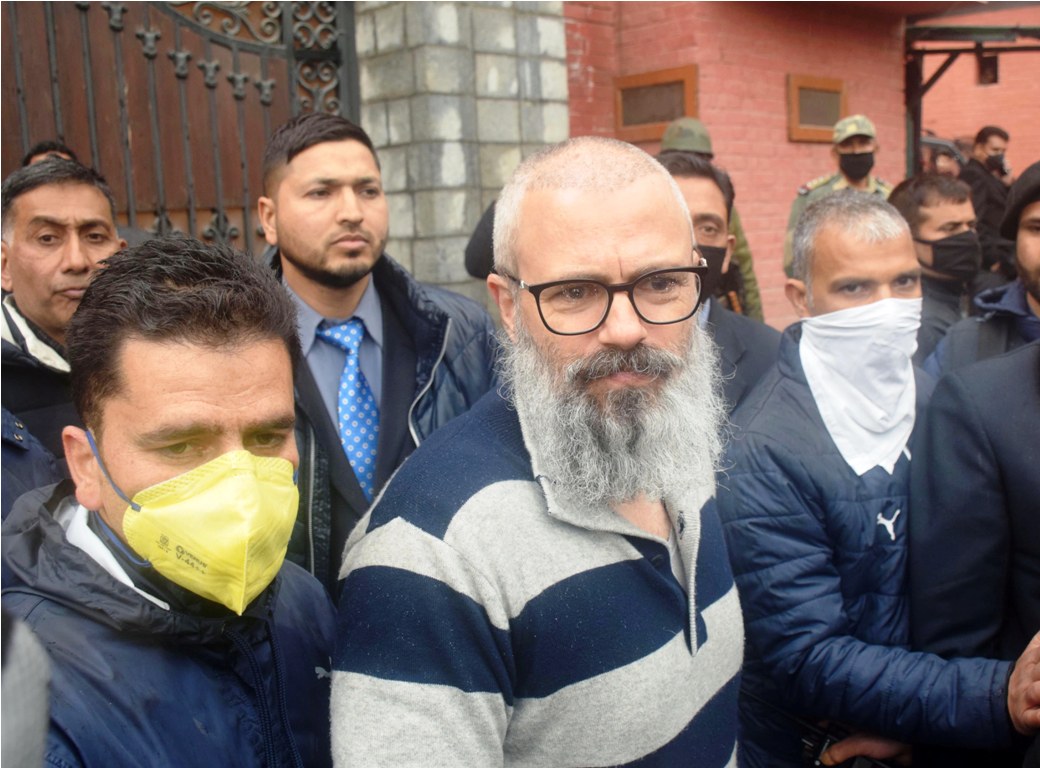by Riyaz Wani
Former Jammu and Kashmir Chief Minister Omar Abdullah’s tweet warning Kashmiris against looking at China as “some sort of saviour” triggered massive trolling against him on social media forcing him to temporarily delete his account. The reason for trolling was the implicit inference in Omar’s tweet that Kashmiris harboured sympathies for China.
And it was a troubling accusation to make under the circumstances when New Delhi is on the brink of a war with China. Branding Kashmiris as sympathisers of China was thus tantamount to painting them as enemies of India. As a corollary, it exposed Kashmiris in other parts of India to a possible hostile action from the people.

The tweet came at a time when the face-off between India and China was coming to a head. Twenty soldiers were killed by the Chinese during a clash in Galwan Valley. So sensitivities among people ran high. Omar’s tweet had thus the potential to turn the discourse within the country against Kashmiris. More so, with jingoistic sections of media always ready to demonize Kashmiris at the first opportunity.
Why did Omar post this tweet in the first place? There wasn’t any visible public celebration of the Chinese intrusion in Ladakh in the Valley. Questions have been raised about the timing, context and intent. Here is a leader whose politics has traditionally rested on the protection of Jammu and Kashmir’s autonomy under Article 370 that was revoked on August 5, 2019 without centre giving a hoot about what his or any other political party thought about it.
Omar and his father Dr Farooq Abdullah were despatched to jail, so were other major leaders including Mehbooba Mufti. Omar was in jail for eight months before being released on March 24 weeks after his was father was freed. Interacting with media soon after his release, Omar refused to talk about the revocation of Article 370 saying he will do so after the Coronavirus pandemic has been contained and the other leaders released, the excuses that are indefinite in their timeframe. This so even when New Delhi issued more laws to make far-reaching changes in Jammu and Kashmir that went against what Omar’s National Conference has always stood for. But both Omar and his father have refused to break their silence since.
True, it could be a tactical move and therefore understandable in the light of the ongoing situation. But through it all Omar’s tweets about various issues have left people wondering about his priorities. They reveal a person uninterested in or unmindful of the changing situation on the ground. More so, at a time when he is supposed to lead a public response or at least correctly articulate the prevailing extraordinary situation in the Valley.
The China tweet was thus a trigger for weeks-long pent-up public resentment which boiled over. People have ascribed personal motives to the tweet and understandably so. Omar has been accused of trying to please Delhi with an ostensible aim to secure power for himself in future. Though such a scenario under the circumstances looks far-fetched, the suspicion about Omar’s intent reveals a deep distrust among people in the Valley about their leaders. And it has its roots in the way the mainstream politics has been conducted in Jammu and Kashmir over the decades.
The cardinal sin of the establishment politics in the region is that it looks at the politics more with reference to Delhi than through the prism of its constituents. Keeping centre in good humour is seen as the stronger guarantee of perpetuation in power than being responsive to the people. Nothing explains it better than NC’s own history.
What the party has said and did have largely diverged. The party may swear by Kashmiri sub-nationalism, its core constituency, but in public perception, it has always appeared willing to compromise it for power. Over the year, the autonomy, otherwise the party’s central plank, had become little more than a slogan, resurrected in times of urgent political or electoral necessity only. Rather than straddling Kashmir-New Delhi divide or engaging in a vibrant local politics, the NC has tried to either to transcend it or slant heavily towards Delhi.
This has confirmed to Kashmiris as an article of faith that all that the mainstream parties wanted was power. They had little qualms about abandoning their ideological moorings for the same. In this Mehbooba has proved no different than Omar. Until she was put under detention following August 5 move that seems to have done some good to her image, Mehbooba too had lost faith with the people.
Omar’s tweet was representative of political instincts of a Kashmiri mainstream leader: his intermittent need to distance himself from his people in a bid to win admirers in New Delhi. Rage on social media against him was born out of the shock that this instinct has survived the humiliation of August 5.















